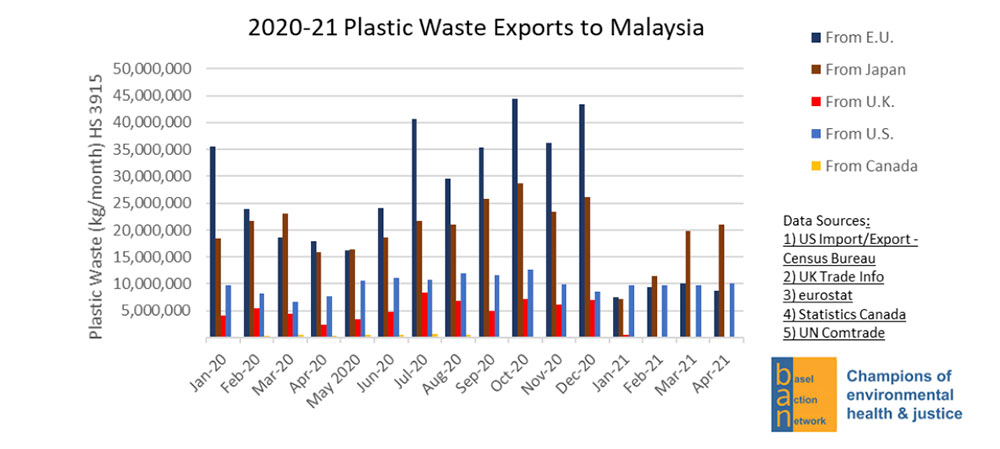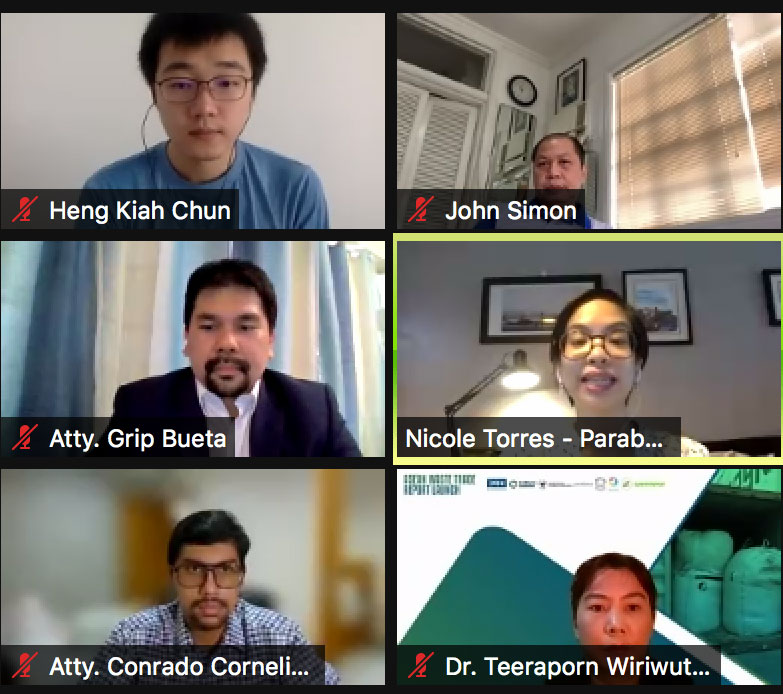Environmental groups have urged Asean governments to work together to stop the region from becoming a dumping ground for the world’s waste.
They called for more “unified” action that will lead to better coordination and enforcement of existing laws.
In a new report, the groups identified “waste trade” as a serious problem shared by Malaysia, Thailand, Indonesia and the Philippines.
Waste trade is the export of waste, typically from more developed nations to developing nations.
Waste trade made headlines in Malaysia three years ago when then-minister of energy, science, technology, climate change and environment Yeo Bee Yin uncovered thousands of tonnes of plastic waste that had been illegally smuggled into the country from the UK, US, Spain, Canada and Japan.
Yeo oversaw the process as 150 containers of such waste were repatriated to where they came from.

The report contended that a national-level approach would be enhanced if Southeast Asian countries came together to develop a regional response to the problem.
Titled “Waste Trade in Southeast Asia: Legal Justifications for Regional Action”, the report was compiled by global environmental research network IPEN and the Swedish Society for Nature Conservation.
Keeping waste out, together
The report’s lead author - Filipino lawyer and environmental justice advocate Gregario Rafael Bueta - underscored that Asia had become the “destination of choice” for the developed world to dump their wastes.
This was especially after 2018, when China cracked down on waste smuggling into the country.
This was also despite many Asean countries having laws and policies on waste management in place.
Malaysia, for example, has the Solid Waste and Public Cleansing Management Act 2007 and the Local Government Act 1976. It is also a signatory of the Basel Convention, an international declaration against disposing of waste in developing nations.
However, according to the Basel Action Network, Malaysia continues to be a destination for large amounts of plastic waste exports from the European Union, Japan, UK, US and Canada.
In 2020, a spike was seen in October when the EU exported almost 49,604 tonnes of plastic waste to Malaysia, while Japan exported almost 33,609 tonnes.
The UK exported about 7,716 tonnes while the US exported about 13,227 tonnes of plastic waste to Malaysia.

During the report launch yesterday, Bueta analysed that weak law enforcement by individual nations, coupled with a lack of a regional response, led to the exacerbation of the problem.
He proposed that Asean takes a “clear and concrete” stand on the waste trade.
This includes a strong regional position and mechanism on the issue, banning all waste shipments and helping those working in waste-related industries to transition out.
While there were already enough legal instruments, Bueta suggested that Asean sets up a permanent body of experts to identify loopholes in each nation’s laws and come up with a regional stand on waste trade.
Such a body would need to be independent and apolitical. All Asean countries would need to be equally represented.
The ultimate goal will be a legally binding regional agreement for all Asean countries on how to deal with waste trade, including rights and remedies.
Bueta stressed that Asean should stand together to push back against the waste trade.

“It’s important for our region to really take a strong stand if we want to send a strong message to the developing world and those who are in the practice of shifting and shifting their wastes to our countries.
“Our region is not a dumping ground and we will take legal and other action to (address) the waste trade and the waste crisis in our region,” he said.
According to the UN Commodity Trade Database, worldwide plastic export in 2017 was valued at US$4.5 billion (RM19 billion) while import that year was valued at US$6.1 billion (RM25 billion).
Yesterday’s launch was organised by groups from Asean, including IPEN Southeast and East Asia, EcoWaste Coalition, Sahabat Alam Malaysia, Greenpeace Southeast Asia, Parabukas, Nexus3, Foundation Indonesia and Earth. - Mkini




No comments:
Post a Comment
Note: Only a member of this blog may post a comment.